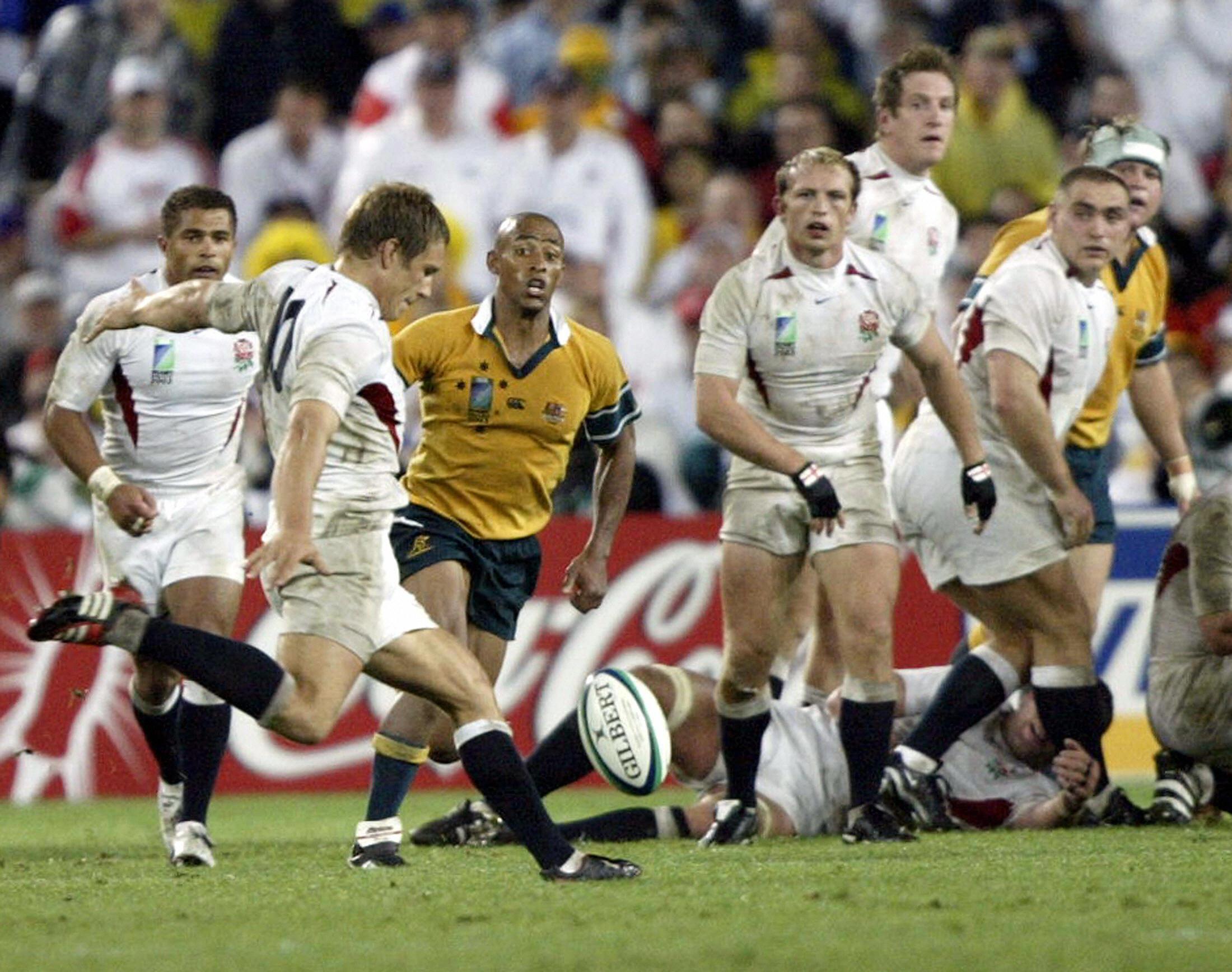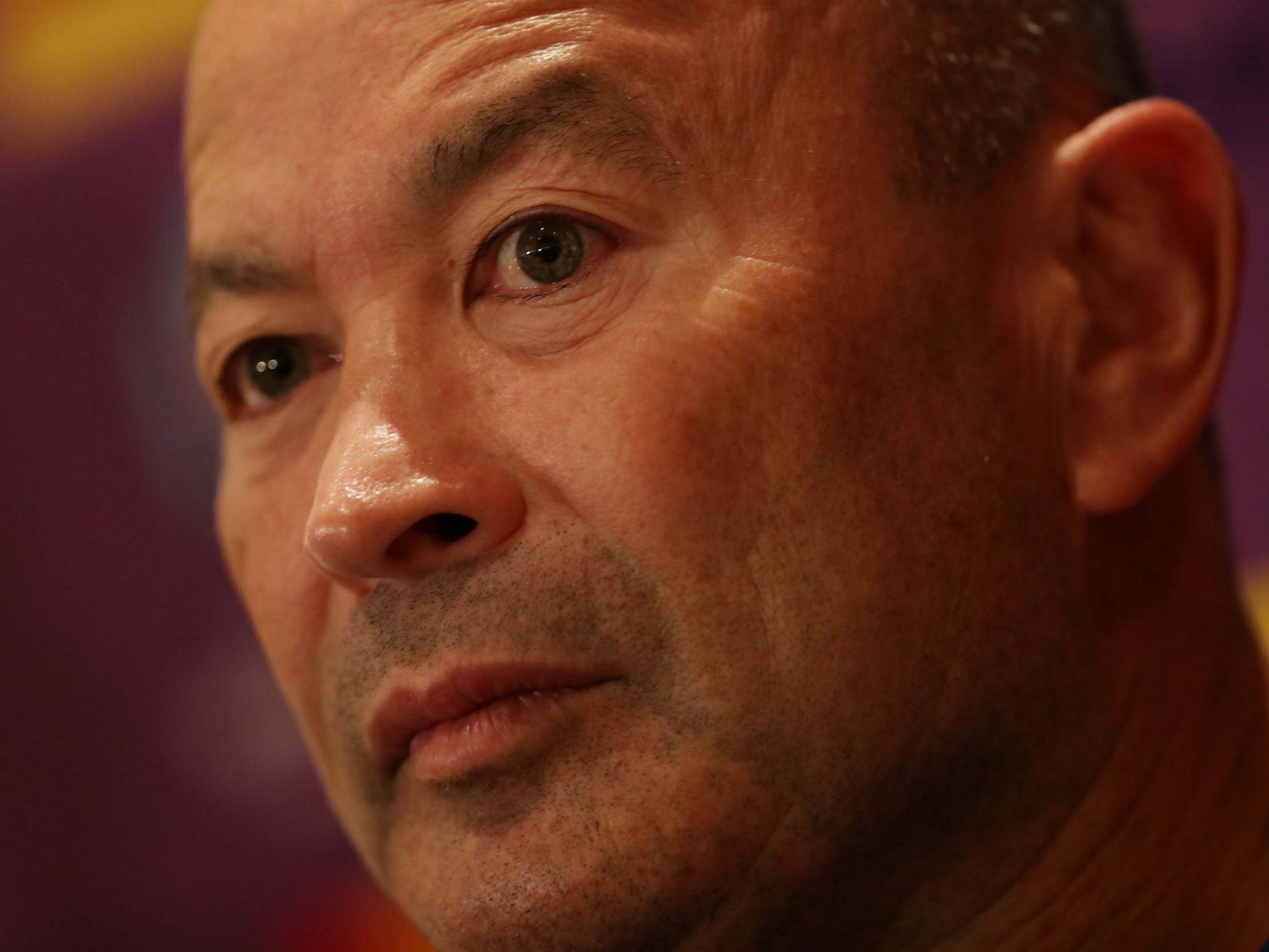England vs South Africa: Jonny Wilkinson on the psychology of a World Cup final and how to beat the Springboks
Wilkinson insists England’s history-chasers should take a moment to pause and reflect on the moment, to embrace the journey of where they’ve been and where they’re headed

Your support helps us to tell the story
From reproductive rights to climate change to Big Tech, The Independent is on the ground when the story is developing. Whether it's investigating the financials of Elon Musk's pro-Trump PAC or producing our latest documentary, 'The A Word', which shines a light on the American women fighting for reproductive rights, we know how important it is to parse out the facts from the messaging.
At such a critical moment in US history, we need reporters on the ground. Your donation allows us to keep sending journalists to speak to both sides of the story.
The Independent is trusted by Americans across the entire political spectrum. And unlike many other quality news outlets, we choose not to lock Americans out of our reporting and analysis with paywalls. We believe quality journalism should be available to everyone, paid for by those who can afford it.
Your support makes all the difference.Jonny Wilkinson is doing what Jonny Wilkinson does best. Surrounded by a swarm of local kids, some barely knee-high in height, the World Cup winner is bringing order to chaos. He’s got two on either side of him, hands locked together, gently guiding them this way and that as they attempt to round up the loose players buzzing around like flies. The more they catch, the longer the line gets.
Nearby is Lawrence Dallaglio. His approach is less calm and composed. A bull in a china shop, he’s practically dragging his team mates forward with him as he goes. He’s roaring at the same time, eyes wide as saucers. For those children hanging off his arms, the fear of god in their hearts, this is the safest place to be as he charges around the pitch.
In this leafy corner of Tokyo, away from the neon shimmer of the city’s pulsing centre, with its scrambled intersections and endless flow of people, it’s hard to resist the nostalgia – especially on a week like this. As the nation looks forward to Saturday night and the promises of new glory, Wilkinson and Dallaglio remain tangible links to the past, to an age when England ruled the world.
The context might be a little bit different this time – the two men are introducing young Japanese children to the basics of rugby as part of the tournament’s legacy initiatives – but that doesn’t stop the sights and sounds from 16 years ago popping up in the mind’s eye.
As for that winning moment in Sydney, you can still see it as clear as day. The initial snipe and break from Matt Dawson to take play into Australia’s 22. The recycle, the pass out to Wilkinson, then the long pause in time and space that followed as the ball sailed majestically through the posts. “Just relief,” Martin Johnson would say a few years later. “Honestly sheer relief. You’d have never forgiven yourself for losing that match because it was there for us to win.”
But for all the talk of building on this legacy, of adding another layer to the sporting palimpsest, there’s no doubt that today’s England team are on their “own journey of discovery” – as Dallaglio puts it. And for Wilkinson, the comparisons stop beyond the jersey.
“It’s not my era and it’s important to establish that rugby has moved on,” he says. “It’s like comparing us to the mid-90s and it’s always going to look different, rightly so.” Still, that won’t stop him from singing the praises of Eddie Jones’ men, drawing particular attention to last weekend’s 19-7 semi-final win over New Zealand – a performance that some are describing as the most complete English display ever.
Wilkinson talks eagerly and quickly about it, about “the energy at the top end”, of the “relentless, on-the-edge” nature of the performance, of the “clarity of the decision-making”. It’s safe to say he was left impressed by what he saw. “I can imagine they didn’t even want to know they had won it at the end,” he says. “You want to be in that battle. I think there was a brilliant completeness around that, technically outstanding.
“Every player dominated his area of the game in terms of what he’s supposed to do. And therefore you add that together and you get a machine that looks very well-oiled. Then you’ve got the ability to respond that they had, when they saw opportunities and they just went. It was inspired.”
The challenge now is recreating that magic to consign South Africa to a similar fate – something which Wilkinson urges England against getting too hung up on.
“The problem is if you start comparing this performance to the last one, you are adding a known in there and think, ‘This is what we’ve got to do, this is where we’ve got to play, we’ve got to get this week to be like last week.’ And it just completely shuts off the potential for a similar performance, which is what you want. Go out, start again.
“That game looked for me like a one-off. This game also has to be a one-off. And I think the coaches are great at creating an environment where the players feel fresh, renewed, still connected to their learnings, but not just weighed down by them.”
But with six days between the win over New Zealand and Saturday’s showcase, the challenge facing Jones’ player is as psychological as it is physical. The hours will drag, stretched out under the dizzying anticipation of what is to come. With immortality within reaching distance, the danger lies in looking beyond the 80 minutes and envisioning life as a World Cup winner.

“You just start to get ahead of yourself and start to think what it would be like at the end,” Wilkinson adds. “If you start thinking this is the end of a long journey, it just gets slower and slower.
“All I can say from my experience is that when you get to the end, you would swap it in a heartbeat to go back into the middle of the performance that led to it. When you are walking around with the cup, you think everything is great. But it doesn’t add up to being in the middle of the action, which is where it counts.”
As for what England can expect against the Springboks, Wilkinson points to the children behind him. “[South Africa] make you feel like there are 20 of them,” he says, smiling at the same time.
“They are a very smothering team, really get around you and make you think the pitch is tiny. And they are enormously explosive. Which means that very, very small moments can turn into big moments. A little dropped ball here, you get caught behind the gain line, a big hit, and all of a sudden, within two seconds they have piled over the ruck, got the ball, they are 50-60 meters downfield.
“And they can dominate a momentum change like that. It’s important England manage those moments, but at the same time you don’t want to get into an arm-wrestle with these guys like Wales did. It’s very difficult when you are in a tight game to branch out and start getting into a wider game. When you are in a wider game, you can always bring it in.”

But for all the scrutiny and introspection that accompanies a week like this, as questions are raised of tactics and selection choices, with past performances and meetings re-examined, and former players asked for their twopence, Wilkinson insists England’s history-chasers should take a moment to pause and reflect on the moment, to embrace the journey of where they’ve been and where they’re headed.
“You are so close to arriving, you want to arrive but the last thing you ever want to do in life is arrive,” he says, “and I think these guys are on their way somewhere.”
Land Rover is Official Worldwide Partner of Rugby World Cup 2019. With over 20 years of heritage supporting rugby at all levels, Land Rover is celebrating what makes rugby, rugby. #LandRoverRugby
Join our commenting forum
Join thought-provoking conversations, follow other Independent readers and see their replies
Comments